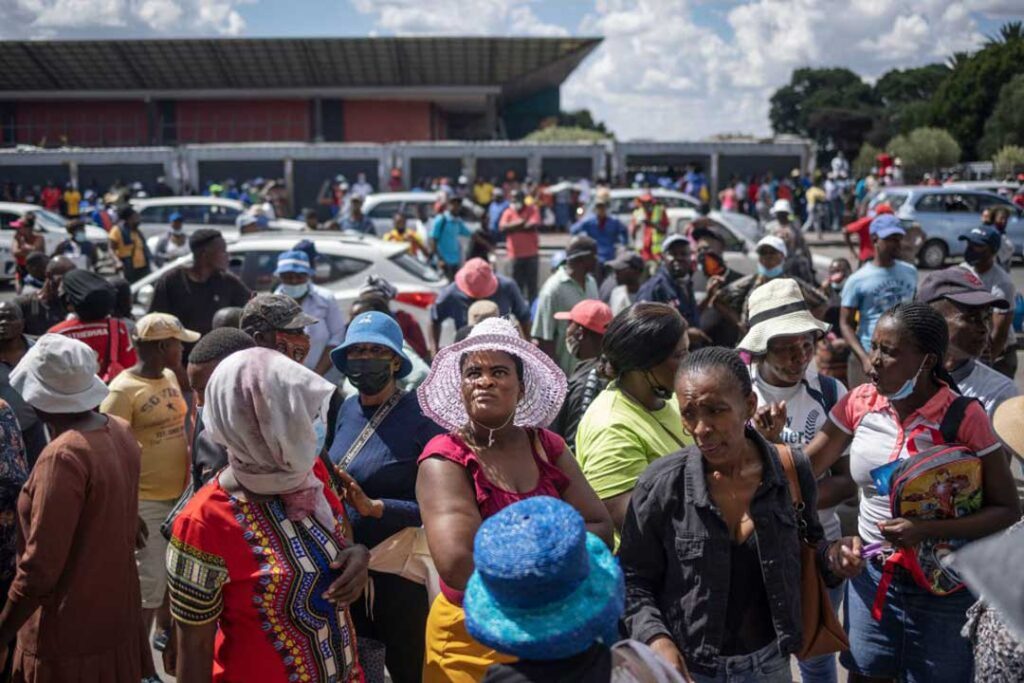ADF STAFF
As COVID-19 cases are plateauing in South Africa, experts are urging the country not to forget the lessons it learned from its two-year battle to control the virus.
Veronica Ueckermann, an adjunct professor at the University of Pretoria, said one of those lessons is to avoid “COVID fatigue” and continue protecting the most vulnerable populations.
Writing in The Conversation, Ueckermann, who works in the university’s Department of Internal Medicine, cited recent studies that showed people with HIV have a greater quantity of COVID-19 in their bodies when they become infected.
“We are still likely to experience periods of increased cases, smaller-scale outbreaks and even the development of new variants,” Ueckermann wrote in February.
Researchers worry that new variants may emerge in people who have undiagnosed HIV. That’s a concern in South Africa, where 7.7 million people live with the virus.
Ueckermann wrote that preventive measures such as wearing masks and frequent hand-washing should still be practiced, even as South Africa eases lockdown restrictions.
“The effectiveness of mask-wearing has been heatedly disputed. But there is good scientific evidence that mask-wearing does decrease the risk of contracting COVID-19 and curbing its spread,” Ueckermann argued. “So despite the general COVID fatigue, this behaviour remains an effective one.”
By March, authorities reported that the country had a high level of population immunity. Just before the omicron wave hit, testing in the country’s business hub of Gauteng province indicated that 72% of the population had been infected over the course of the first three waves, giving the region a high level of natural immunity.
Scientists now say that continued quarantining in South Africa won’t significantly ease the threat of future COVID-19 infections. They point to the statistics that show that despite quarantines and contact tracing, three-quarters of the population were infected over the course of the first three waves.
Still, Ueckermann warned of going backward by removing all restrictions.
“Just as the 1918 flu pandemic was celebrated as having ended and restrictions were lifted, a wave of disease followed,” she wrote. “Healthcare facilities were overwhelmed and many people died. Our behaviour should, therefore, remain cautious and we should not lose the race in its last lap.”
A February 2022 report by The New England Journal of Medicine said the Gauteng study shows that if the primary goal in the fight against COVID-19 was to protect the population against severe disease and death, rather than preventing infection, that goal has been attained. The report described the drop in COVID-related hospitalizations and deaths in South Africa as a turning point for the country.
But the country’s battle against COVID-19 is not over.
South Africa is expected to experience a fifth wave of COVID19 infections near winter, according to Health Minister Dr. Joe Phaahla. He told eNews Channel Africa (eNCA) that an increase of COVID-19 patients under age 20 was reported after schools reopened in February.
“The picture we have seen is what you could almost call a stalemate,” Phaala told eNCA. “There has been no serious decline, but yet, there has been no worrying rise in [total] infections.”
Phaala added that the expected fifth wave could hit South Africa before winter, “depending on whether we experience variants of concern much earlier than we did with omicron.”

